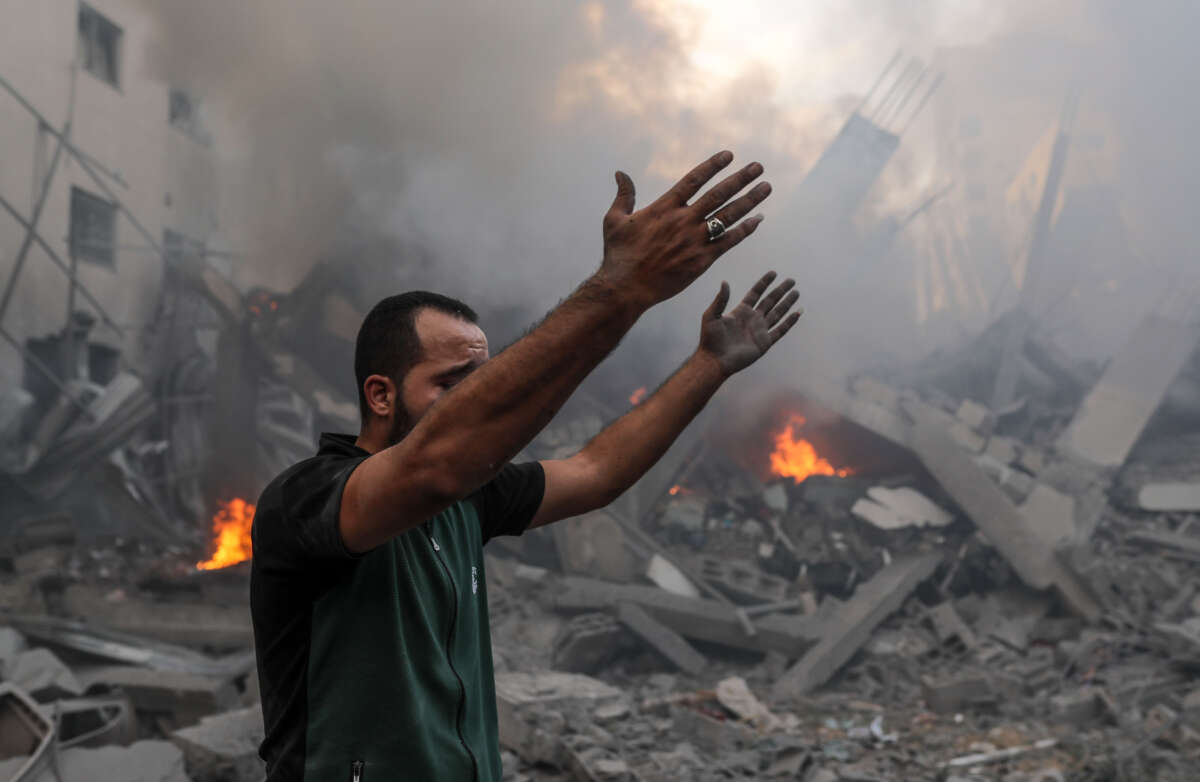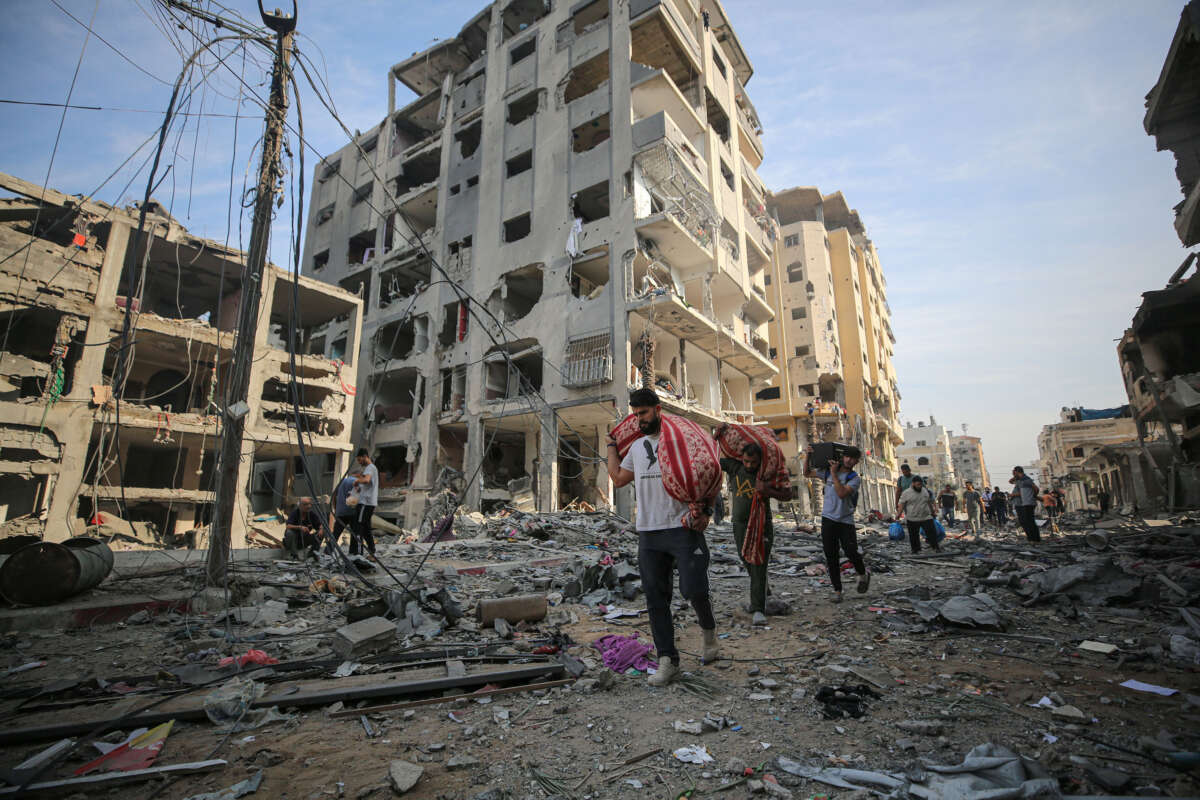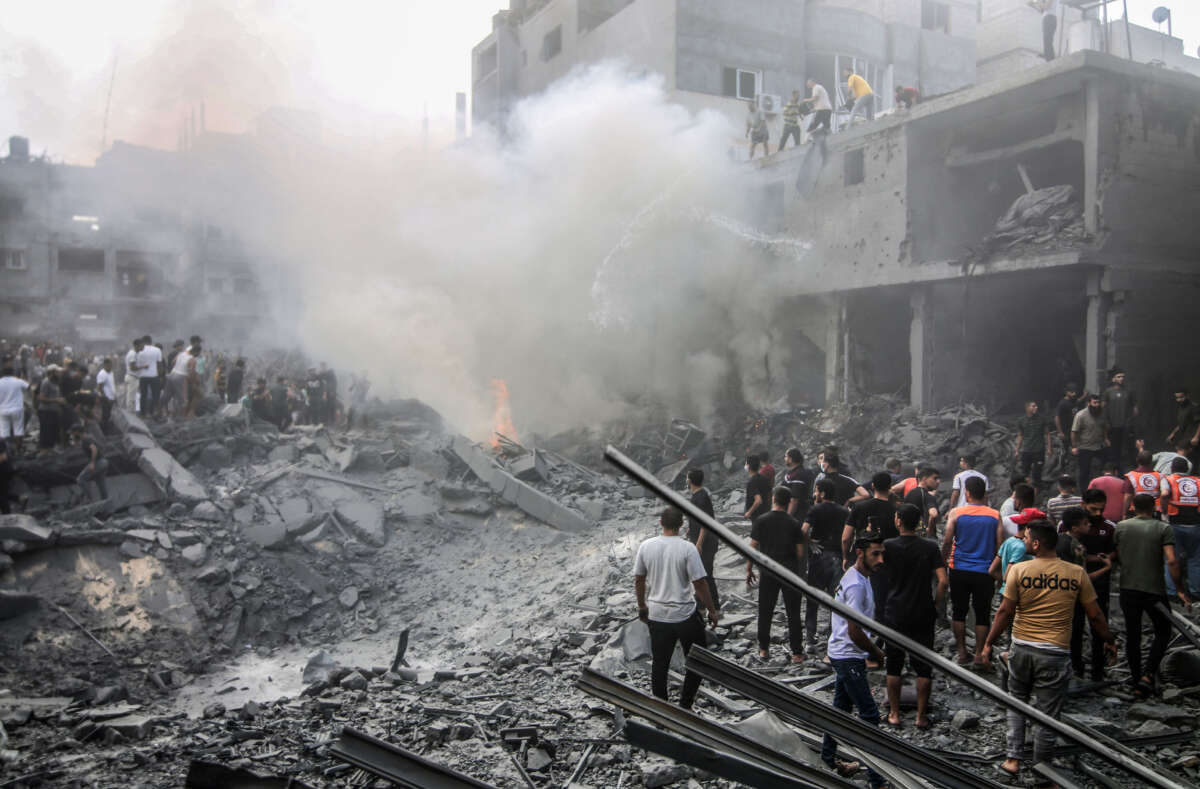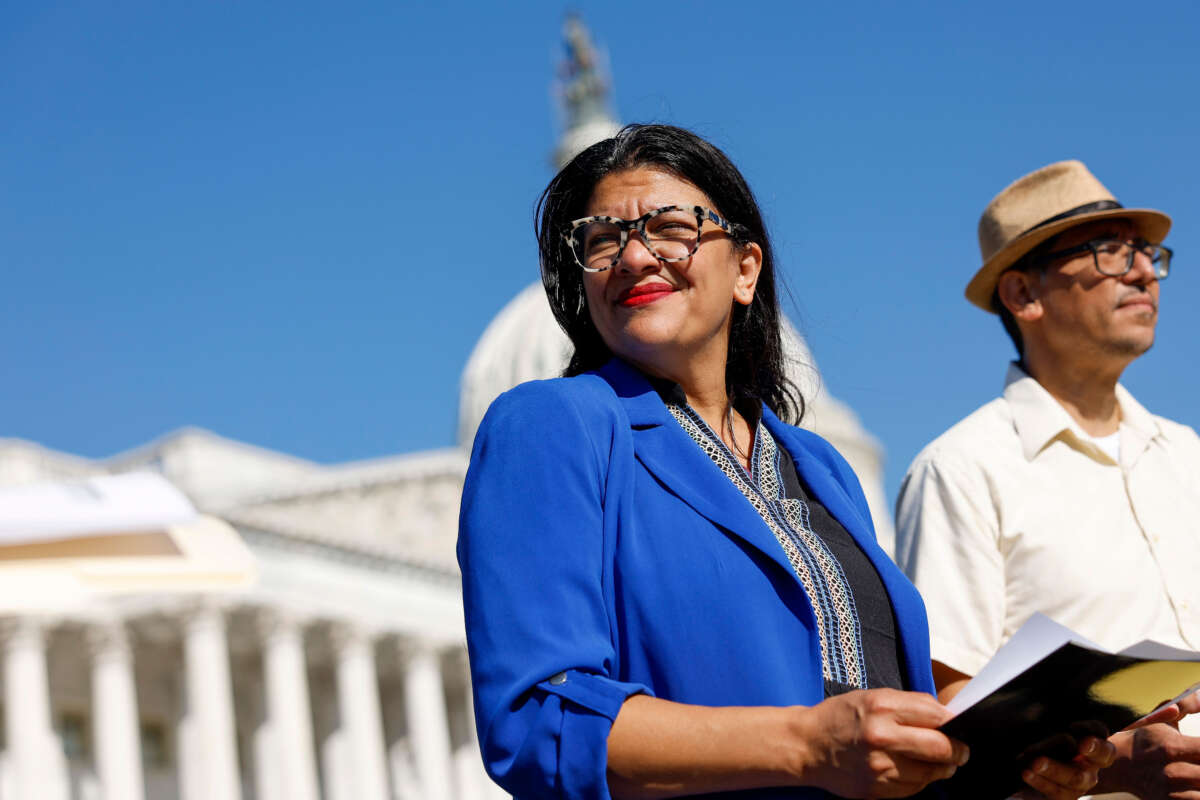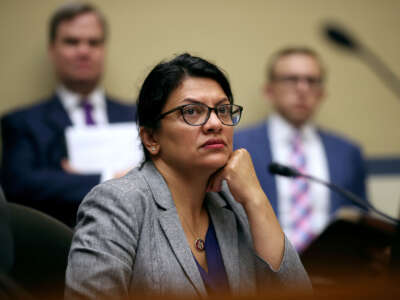Democracy Awakening: Notes On The State of America
by Heather Cox Richardson
Viking, 2023
[Publication date: September 26, 2023]

“A vibrant, and essential history of America's unending, enraging and utterly compelling struggle since its founding to live up to its own best ideals… It's both a cause for hope, and a call to arms.”--Jane Mayer, author Dark Money
From historian and author of the popular daily newsletter LETTERS FROM AN AMERICAN, a vital narrative that explains how America, once a beacon of democracy, now teeters on the brink of autocracy -- and how we can turn back.
In the midst of the impeachment crisis of 2019, Heather Cox Richardson launched a daily Facebook essay providing the historical background of the daily torrent of news. It soon turned into a newsletter and its readership ballooned to more than 2 million dedicated readers who rely on her plainspoken and informed take on the present and past in America.
In Democracy Awakening, Richardson crafts a compelling and original narrative, explaining how, over the decades, a small group of wealthy people have made war on American ideals. By weaponizing language and promoting false history they have led us into authoritarianism -- creating a disaffected population and then promising to recreate an imagined past where those people could feel important again. She argues that taking our country back starts by remembering the elements of the nation’s true history that marginalized Americans have always upheld. Their dedication to the principles on which this nation was founded has enabled us to renew and expand our commitment to democracy in the past. Richardson sees this history as a roadmap for the nation’s future.
Richardson’s talent is to wrangle our giant, meandering, and confusing news feed into a coherent story that singles out what we should pay attention to, what the precedents are, and what possible paths lie ahead. In her trademark calm prose, she is realistic and optimistic about the future of democracy. Her command of history allows her to pivot effortlessly from the Founders to the abolitionists to Reconstruction to Goldwater to Mitch McConnell, highlighting the political legacies of the New Deal, the lingering fears of socialism, the death of the liberal consensus and birth of “movement conservatism.”
Many books tell us what has happened over the last five years. Democracy Awakening explains how we got to this perilous point, what our history really tells us about ourselves, and what the future of democracy can be.
“Heather Cox Richardson’s Democracy Awakening is an important addition to the burgeoning literature and scholarship on what I have characterized as America’s Third Reconstruction…she is at her best simply telling us the story of how we came to be living on the brink of ending our nearly 250-year democratic experiment.”
"A fresh historical interpretation of American democracy and its many challenges...It’s an unusual but effective structure, allowing Richardson to do what she does best: show her readers how history and the present are in constant conversation. Reminding us that 'how it comes out rests…in our own hands,' Richardson empowers us for the chapters yet to come."
—Kirkus *Starred Review*
“Engaging and highly accessible.”—Boston Globe
“This is a vibrant, and essential history of America's unending, enraging and utterly compelling struggle since its founding to live up to its own best ideals. From yesterday's enslavers to today's authoritarians, it shows how bad actors have always tried to twist history to serve their own purposes, but again and again, less powerful challengers have risen and often won. It's both a cause for hope, and a call to arms.”
—Jane Mayer, author Dark Money: The Hidden History of the Billionaires Behind the Rise of the Radical Right
“With her characteristic powerful prose, Heather Richardson explores the raging (in every sense of the word) political, cultural, and social forces that an elite minority has fostered to divide Americans, erode democracy, and rise to power. By reclaiming this history, she reminds us that democracy is a process, not an endpoint -- and that it demands our efforts now, more than ever.”
—Joanne Freeman, Professor of History at Yale University and author of Field of Blood
"No one understands the warp and woof of the complicated tapestry that is the United States, no one apprehends the undertow and disparate forces that have directed the tides of American politics, no one forges the connections between then and now better than Heather Cox Richardson does. The result is a cogent, challenging, thoughtful, riveting and beautiful narrative. Brava!"
“For the last several turbulent years, millions have looked to Heather Cox Richardson’s daily letters for vital historical perspective, wisdom, and moral clarity. In Democracy Awakening, Richardson goes beyond the news cycle to explain how we got here, placing our current political crisis against the age-old struggle to expand civil rights and economic opportunity. What emerges is a brilliant and honest account of our nation’s past and present. If you care about American democracy—and are engaged in the fight to preserve it—this book is a must-read.”
—Preet Bharara, former U.S. Attorney for the Southern District of New York
ABOUT THE AUTHOR:
Until Our Lungs Give Out: Conversations on Race, Justice, and the Future
by George Yancy
Rowman & Littlefield Publisher, 2023
[Publication date: September 15, 2023]
From Library Journal's Starred Review: "All readers stand to learn something from this compelling book."
Award-winning author, scholar, and social visionary George Yancy brings together the greatest minds of our time to speak truth to power and welcome everyone into a conversation about the pursuit of justice, equality, and peace.
This interwoven collection of searingly honest interviews with leading intellectuals includes conversations with Noam Chomsky, Judith Butler, Cornel West, Robin D. G. Kelley, and Peter McLaren. Each conversation bears witness to the weighty moment in which it was first conducted and presented by Truthout and Tikkun magazines while pointing to ramifications, future hurdles, and practical optimism for moving forward.
Learning how to speak about such topics as white supremacy and global whiteness, xenophobia, anti-BIPOC racism, fear of critical race theory, and the importance of Black feminist and trans perspectives, readers will be better able to join future conversations with their peers, those in power, and those who need to be empowered to change the status quo.
REVIEWS:
Award-winning Yancy presents this collection of interviews that are replete with ideas and insights about all that the pursuit of justice, equality, and peace entails. The author brings together leading intellectuals and philosophers—Noam Chomsky, Judith Butler, Cornel West, and Eric Foner, for example—to discuss the topic in raw, searing honesty. Author/scholar/activist Frank B. Wilderson III describes the impact of unrelenting oppression against Black people, and there are powerful chapters such as the one called, "To Be Black in the U.S. Is To Have a Knee Against Your Neck Every Day." The book also includes observations by somewhat lesser-known people: author Chelsea Watego; British-based political sociologist Akwugo Emejulu, and Brian Burkhart, and more. Explicitly addressed is the preposterous suggestion that everyone just "move on" from thinking about racism. This book’s contributors say that the only way society can do that is if white people go through some type of kenosis about their prejudices and notions that people do not deserve the same rights. All readers stand to learn something from this compelling book.― Library Journal, Starred Review
These stimulating and wide-ranging engagements—from Noam Chomsky and Judith Butler, to Robin Kelley, Mari Matsuda, and Cornel West—remind us of the range and depth of philosophical knowledge that underscores George Yancy’s work as a public intellectual as well as a scholar. This collection of conversations is a must-read for those of us seeking deeper understandings of the complex interactions of race, class, gender, and justice.
-- Henry Louis Gates Jr, the Alphonse Fletcher University Professor, Harvard UniversityUntil Our Lungs Give Out is a painfully relevant and indispensable book that brings together world-renowned scholars to collectively demonstrate what it looks like to face the horrors and deep conflicts of the world head on and to speak against them despite the dangers of doing so. As one of our nation's most searingly insightful philosophers, Yancy has prophetically modeled speaking truth in love and has steadfastly refused to sugarcoat the truth no matter the personal cost to him. This collection of critical conversations underscores the hard truth that we have neither been good stewards of the earth nor have we been good neighbors toward each other. We have failed to give the abundance of care that each one of us deserves. Until Our Lungs Give Out bears witness to a cadre of renowned peacemakers (not peacekeepers) who will fight for national and global justice, humanity and peace until their lungs give out.
-- Kirsten Powers, CNN senior political analyst, New York Times bestselling authorMany thanks to philosopher and public intellectual George Yancy for this bounty of engaged thought from our foremost thinkers. We need this gift now more than ever—as a source of both perception and hope.
-- Nell Irvin Painter, author of The History of White People
Robin D. G. Kelley poignantly captures the protests for racial justice during the surge in white nationalist retaliations. He states, 'If there is such a thing as the arc of the moral universe, it does not bend on its own. We bend it one way, our enemies bend it back.' George Yancy’s interviews with Kelley and many of the most important thinkers and doers of our times inspire many ways we can go forward from here. These interviews are thought-provoking, forward-thinking, and inspiring about next steps.
-- Tera W. Hunter, author of Bound in Wedlock: Slave and Free Black Marriage in the Nineteenth CenturyUntil Our Lungs Give Out is a timely and tremendously important book. It presents thoughtful and thought-provoking conversations between distinguished philosopher George Yancy and a dazzling array of the world’s most profound, original, and generative thinkers about anti-Black racism in the U.S. and around the world.
The title of George Yancy’s new collection of interviews tells it all: he gives voice to the top critical thinkers in today’s struggle against racism and sexism, thinkers who persist in their struggle to the end, until their lungs give out. I’ve never seen a volume which combines multiple perspectives with a united strong commitment to emancipation. Until Our Lungs Give Out gives hope, and hope is what we need in our dark times.
-- Slavoj Žižek, author of Surplus-Enjoyment: A Guide for the Non-Perplexed and Heaven in DisorderIn this set of interviews, George Yancy invites leading intellectuals to tarry with global white supremacy, planetary anti-blackness, nocent settler-colonialism, structural misogyny, and insatiable capitalist extraction. The message and messengers are deeply political, philosophical, and pedagogical. At once an act of defiance and radical love, Until Our Lungs Give Out asks us to peer into a futurity its authors likely will not inhabit.
Refusing to adjust to injustice, George Yancy’s interlocutors speak with passion and urgency attesting to Yancy’s skill as an interviewer. Listen to what they have to say, for the insights they express speak to some of the gravest issues of our times.
-- Robert Gooding-Williams, professor of philosophy and African American studies, Columbia UniversityABOUT THE AUTHOR:
George Yancy is the author, editor, and co-editor of over 20 books, including Backlash: What Happens When we Talk Honestly About Racism in America. He is known for his influential essays and interviews in the New York Times' philosophy column, The Stone. Yancy lives in Atlanta, Georgia and he works primarily in the areas of critical philosophy of race, critical whiteness studies, and philosophy of the Black experience. He is particularly interested in the formation of African-American philosophical thought as articulated within the social and historical space of anti-Black racism, African-American agency, and questions of identity formation. His current work focuses on the theme of whiteness and how it constitutes a site of embedded social reality and a site of deep and enduring opacity, which is related to what he has theorized as white ambush. He is interested in the ways in which whiteness as an embodied phenomenon is a reality underwritten by historical forces and practices. Hence, he takes history seriously as an ever present force through which bodies are positioned. He is interested in themes such as white subject formation, white epistemic ways of knowing/not knowing, privilege and hegemony, and forms of white spatial bonding as sites of white solidarity and interpellation (or hailing). He is also interested in how such forms of white epistemic and bodily bonding are underwritten by white intelligibility. Yancy explores the theme of racial embodiment, particularly in terms of how white bodies live their whiteness unreflectively in relationship to the deformation of the black body and other bodies of color. He sees the two as relational. Within this context, his work explores Black Erlebnis or the lived experience of black people, which raises important questions regarding Black subjectivity, modes of Black spatial mobility, ontological truncation, and embodied resistance.
Yancy is also interested in the intersection between philosophy and biography. More specifically, he is interested in questions regarding philosophical self-formation, that is, how philosophers come to believe what they believe and how such belief formations/configurations are linked to historical, cultural, racial, and gendered processes. Yancy is also interested in ways to engage philosophy dynamically, to practice frank speech or courageous speech, within and outside the classroom. Yancy's publications are varied and extensive. He has authored, edited, and co-edited numerous books, articles, and chapters. His work has been quoted worldwide, including in Turkey, Australia, South Africa, and Sweden. He is known for his powerful and influential conversations with philosophers on race at The Stone, New York Times. Yancy is also "Philosophy of Race" Book Series Editor at Lexington Books. Learn more at www.georgeyancy.com
Black AF History: The Un-Whitewashed Story of America
by Michael Harriot
Dey Street Books, 2023

America’s backstory is a whitewashed mythology implanted in our collective memory. It is the story of the pilgrims on the Mayflower building a new nation. It is George Washington’s cherry tree and Abraham Lincoln’s log cabin. It is the fantastic tale of slaves that spontaneously teleported themselves here with nothing but strong backs and negro spirituals. It is a sugarcoated legend based on an almost true story.
It should come as no surprise that the dominant narrative of American history is blighted with errors and oversights—after all, history books were written by white men with their perspectives at the forefront. It could even be said that the devaluation and erasure of the Black experience is as American as apple pie.
In Black AF History, Michael Harriot presents a more accurate version of American history. Combining unapologetically provocative storytelling with meticulous research based on primary sources as well as the work of pioneering Black historians, scholars, and journalists, Harriot removes the white sugarcoating from the American story, placing Black people squarely at the center. With incisive wit, Harriot speaks hilarious truth to oppressive power, subverting conventional historical narratives with little-known stories about the experiences of Black Americans. From the African Americans who arrived before 1619 to the unenslavable bandit who inspired America’s first police force, this long overdue corrective provides a revealing look into our past that is as urgent as it is necessary. For too long, we have refused to acknowledge that American history is white history. Not this one. This history is Black AF.
REVIEWS:
“A razor-sharp reassessment of American history. . . . Entertainingly colloquial and impressively erudite, this meticulous survey of the American past is an invaluable resource.” — Publishers Weekly (starred review)
"Fresh eyes and bold, entertaining language combine in this authoritative, essential work of U.S. history." — Kirkus Reviews
“Michael Harriot has done it. Written a book that evokes the full range of human emotions. Laughter. Rage. Sadness. Love (of Black resistance). Hate (of anti-Blackness). More laughter. Constant thinking and connecting and discovering. What an experience. But how can this book be anything less when it is Black AF History.” — Ibram X. Kendi, Award-winning author
“This is history as it should be told: straight, no chaser; unvarnished and unembossed. Michael Harriot, the Samuel L. Jackson of the written word, strikes again, weaving fascinating facts, scathing humor and pieces of his own life story to detail the stony road we trod.” — Joy Reid, Host of The ReidOut on MSNBC
“The story we've been told about America has always been redacted. With Black AF History, Michael Harriot removes the redacted parts and replaces them with griot-level storytelling. This is what everyone wishes their high school courses were actually like. Halfway through, you realize that this is not even a book about Black history, it's about how American history is Black AF.” — Pharrell Williams, Grammy Award-winning producer and musician
“Michael Harriot tells the most shocking (not shocking) stories of Black History I've ever heard. Every story is unbelievable yet, unfortunately, completely believable. Black AF History should be taught in every school across America.” — Amber Ruffin, comedian and host of The Amber Ruffin Show
“If I ever won an election for political office, I would have them swear me in on a copy of Black AF History. Michael Harriot is too funny to be this smart. Now, I have to go google how to ship a case of these to Ron DeSantis.” — W. Kamau Bell, Award-winning television host and stand-up comedian
“A masterwork… Harriot is completely unafraid to call bullshit where it is warranted, and the humorous sidebars, digressions, and reader activities add further value to a history that every American would do well to read… He presents the material in a way that promises to keep readers engaged and, when required, agitated and spurred to action, and documentation offers ample opportunity for anyone to dig further into a particular topic.” — Kirkus Reviews
ABOUT THE AUTHOR:
Michael Harriot is a columnist at theGrio.com where he covers the intersection of race, politics, and culture. His work has appeared in the Washington Post, The Atlantic, NBC, BET, and on his mother’s refrigerator. He is a political commentator on MSNBC and CNN and has been honored by the National Association of Black Journalists for commentary, digital commentary, and TV news writing. Michael is the creator and cohost of the podcast Drapetomaniax: Unshackled History, produced in partnership with Pharrel's OTHERtone. His college course “Race: An Economic Construct” was adapted by university economics departments across the country as a model for teaching the combination of history, economics, politics, and class structures.
Watch Your Language: Visual and Literary Reflections on a Century of American Poetry
by Terrance Hayes
Penquin Books, 2023

From the National Book Award–winning author of Lighthead, Terrance Hayes, a fascinating collection of graphic reviews and illustrated prose addressing the last century of American poetry—to be published simultaneously with his latest poetry collection, So to Speak
Canonized, overlooked, and forgotten African American poets star in Terrance Hayes's brilliant contemplations of personal, canonical, and allegorical literary development. Proceeding from Toni Morrison's aim to expand the landscape of literary imagination in Playing in the Dark ("I want to draw a map, so to speak, of a critical geography"), Watch Your Language charts a lyrical geography of reading and influence in poetry. Illustrated micro-essays, graphic book reviews, biographical prose poems, and nonfiction sketches make reading an imaginative and critical act of watching your language. Hayes has made a kind of poetic guidebook with more questions than answers. "If you don't see suffering's potential as art, will it remain suffering?" he asks in one of the lively mock poetry exam questions of this musing, mercurial collection. Hayes's astonishing drawings and essays literally and figuratively map the acclaimed poet's routes, roots, and wanderings through the landscape of contemporary poetry.
“A dazzling homage . . . [Watch Your Language is] a verbal and visual feast that defies genres . . . exhilerating . . . Time and time again, [Hayes] introduces a phrase or form that appears familiar, then radically reinvents it. The results are strange, sometimes surreal and always sublimely surprising . . . [He] continues to devise language well worth watching.” —The Washington Post
“A wildly entertaining and honest view into a poet and artist’s rangy mind.” —The Millions
“When one of America’s great poets assembles his poetic origin story in a collage-like collection of mini essays, illustrations, prose fragments, and assorted feuilletons of a life in poetry, it behooves us all to pay attention. In examining his own path to poetry, Terrance Hayes also manages to excavate a century of nearly forgotten African American poets, reminding us all of the very narrow poetic canon that predominates to this day in the academy. Essential reading.” —LitHub







